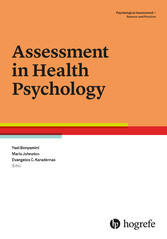Suchen und Finden
Chapter 2 Social Cognitions in Health Behaviour (p. 19-20)
Mark Conner
School of Psychology, University of Leeds, UK
Introduction
The psychological determinants of health behaviours have been an important focus of health psychology for a number of years. The behaviour-specific thoughts and feelings that an individual has about a particular health behaviour have received particular attention (Conner & Norman, 1996, 2005, 2015). These are commonly referred to as social cognitions (or health cognitions). Part of the justification for a focus on social cognitions has been that they represent modifiable determinants of health behaviour that can be targeted in interventions to improve health outcomes. Rather than being examined as individual social cognitions, research has tended to focus on groups of social cognition variables as specified by models such as the theory of planned behaviour, the health belief model, protection motivation theory, and social cognitive theory (Conner & Norman, 2005). These models suggest that the thoughts and feelings I have now about a behaviour will predict whether I perform that behaviour in the future (partly because they inform my current decision or intention to perform that behaviour and partly because that decision plus those thoughts and feelings impact on the performance of the behaviour when the opportunity to act presents itself). This chapter first briefly describes the content of these theories. Second, it focuses on the assessment of key social cognitions as identified by these theories. This is done in relation to general principles guiding the appropriate development of measures rather than highlighting specific existing measures to use. This is because the social cognitions are nearly always developed as behaviour-specific measures that vary as a function of the behaviour being studied (and to some extent based on the population under study). Third, a short conclusion summarises the chapter and discusses future directions.
Key Social Cognition Models
The key social cognitions models include the health belief model (HBM; e.g., Abraham & Sheeran, 2005; Janz & Becker, 1984), protection motivation theory (PMT; e.g., Maddux & Rogers, 1983; Norman, Boer, & Seydel, 2005), theory of reasoned action/theory of planned behaviour (TRA/TPB; e.g., Ajzen, 1991; Conner & Sparks, 2005), and social cognitive theory (SCT; e.g., Bandura, 2000; Luszczynska & Schwarzer, 2005). These models will be briefly described here (see Chapter 3 in this volume for further details on SCT). There is significant overlap between the models in terms of the key health cognitions they identify, which will become apparent as we consider measures of the key social cognitions.
Health Belief Model
The HBM posits that health behaviour is determined by two cognitions: perceptions of illness threat and evaluation of behaviours to counteract this threat. Threat perceptions are based on two beliefs: the perceived susceptibility of the individual to the illness (“How likely am I to get ill?”); and the perceived severity of the consequences of the illness for the individual (“How serious would the illness be?”). Similarly, evaluation of possible responses involves consideration of both the potential benefits of and barriers to action. Together these four beliefs are thought to determine the likelihood of the individual performing a health behaviour. The specific action taken is determined by the evaluation of the available alternatives, focusing on the benefits or efficacy of the health behaviour and the perceived costs or barriers of performing the behaviour. Individuals are assumed to be most likely to follow a particular health action if they believe themselves to be susceptible to a particular condition that they also consider to be serious, and believe that the benefits outweigh the costs of the action taken to counteract the health threat. Two further cognitions usually included in the model are cues to action and health motivation. Cues to action are assumed to include a diverse range of triggers to the individual taking action, which may be internal (e.g., physical symptom) or external (e.g., mass media campaign, advice from others) to the individual (Janz & Becker, 1984). Health motivation refers to more stable differences between individuals in the value they attach to their health and their propensity to be motivated to look after their health.
Protection Motivation Theory
In PMT the primary determinant of performing a health behaviour is protection motivation or intention to perform a health behaviour. Protection motivation is determined by two appraisal processes: threat appraisal and coping appraisal. Threat appraisal is based on a consideration of perceptions of susceptibility/vulnerability to the illness and severity of the health threat in a very similar way to the HBM. Coping appraisal involves the process of assessing the behavioural alternatives that might diminish the threat. This coping process is itself assumed to be based upon two components: the individual’s expectancy that carrying out a behaviour can remove the threat (action–outcome efficacy), and a belief in one’s capability to successfully execute the recommended courses of action (self-efficacy).
Alle Preise verstehen sich inklusive der gesetzlichen MwSt.








